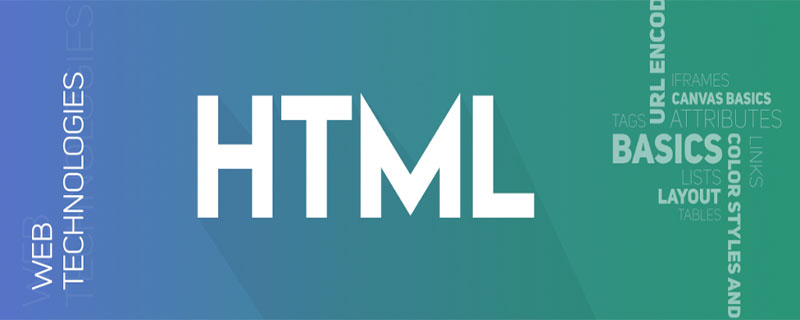
You can help older browsers process HTML5.

HTML5 Browser Support
All modern browsers support HTML5. (Recommended learning: html tutorial)
In addition, all browsers, old and new, will automatically treat unrecognized elements as inline elements.
Because of this, you can help older browsers handle "unknown" HTML elements.
Note: You can even teach Stone Age IE6 how to handle unknown HTML elements.
Defining HTML5 elements as block-level elements
HTML5 defines eight new semantic HTML elements. All are block-level elements.
You can set the CSS display property to block to ensure correct behavior in older browsers:
Example
header, section, footer, aside, nav, main, article, figure {
display: block;
}Ask HTML Adding New Elements
You can add any new element to HTML via browser tricks:
This example adds a new element named
Instance
<!DOCTYPE html>
<html>
<head>
<title>Creating an HTML Element</title>
<script>document.createElement("myHero")</script>
<style>
myHero {
display: block;
background-color: #ddd;
padding: 50px;
font-size: 30px;
}
</style>
</head>
<body>
<h1>My First Heading</h1>
<p>My first paragraph.</p>
<myHero>My First Hero</myHero>
</body>
</html>The above is the detailed content of HTML5 browser support. For more information, please follow other related articles on the PHP Chinese website!
 What are the production methods of html5 animation production?
What are the production methods of html5 animation production?
 The difference between HTML and HTML5
The difference between HTML and HTML5
 How to buy and sell Bitcoin on Binance
How to buy and sell Bitcoin on Binance
 How to express width value in css
How to express width value in css
 How to open db file
How to open db file
 Summary of java basic knowledge
Summary of java basic knowledge
 How to use dict function in Python
How to use dict function in Python
 What software is openal?
What software is openal?
 C language data structure
C language data structure